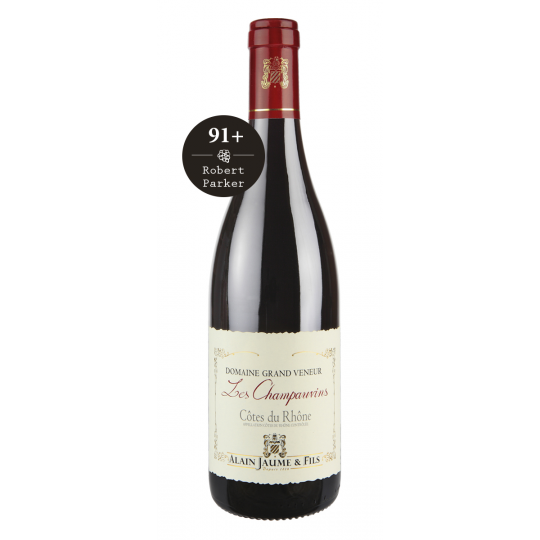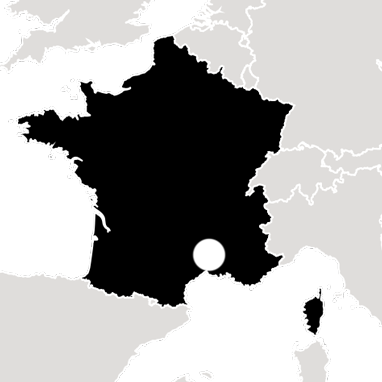Waarom deze wijn?
Deze 'Les Champauvins' wordt de 'baby' Chateauneuf du Pape genoemd. Pal naast (3 meter!) de Châteauneuf du Pape appelation ligt deze wijngaard. Het terroir is identiek! En dat proef je, verrukkelijk! In blinde proeverijen is deze wijn meerdere malen voor volwaardige Chateauneuf du Pape versleten en zelfs in de hoge regionen tussen de 'heilige' Châteauneufs geëindigd. Dus voor ruim een tientje heb je een heel heel veel wijn voor je geld!


De smaak
Deze 'poor persons Chateauneuf du Pape' heeft een prachtige geur van Garrigue: de geur van de kalkplateaus in Zuid-Frankrijk, begroeid met alle Provençaalse kruiden onder een strakblauwe hemel. Rozemarijn, thijm, salie, oregano, venkel, lavendel. Verder veel zwarte kersen jam, zoethout en ander zwart fruit. Weelderig, rijk en full-bodied met zoete tannines en veel concentratie. Elegant en in belans. Om nu te drinken maar ook de komende jaren.
De details
type wijn: rijk, elegant, spicy
druivensoort: Grenache 70%, Syrah 20%, Mourvedre 10%
teelt: biologisch
opvoeding : 70% op staal (Grenache) en 30% eiken (Syrah en Mourvedre)
alcoholgehalte: 14,50 %
afsluiting: natuur kurk
drinktemperatuur: 18 graden
bewaarpotentieel: nu - 2023
Spijs-aanbeveling
Denk vooral aan vleesgerechten met geconcentreerde jus en rijk in kruiderij, maar ook met gerijpte kazen en als een mooi glas bij de openhaard.
De prijzen elders?
Wij vergelijken het voordeel altijd met de prijzen in de online-markt. Belangrijk is dat er dan wel 'appels met appels' worden vergeleken; dus precies dezelfde wijn per 6 flessen van (bij voorkeur) hetzelfde jaar èn bij jou thuisbezorgd (de bezorgtarieven elders zijn meegenomen in de prijscheck). Gemiddeld over alle aanbieders in NL komt de prijs elders uit op € 14,88.
De oorsprong
'One of the best-run and highest quality estates of the Southern Rhone is Domaine Grand Veneur, now run by the younger generation of the Jaume family, Sebastien and Christophe. The brothers have done a fabulous job taking over for their quality-oriented father, Alain. The Jaumes are some of the finest practitioners of white winemaking in the Southern Rhone and showcase that with their least expensive offerings, which are creative blends that over-deliver.' Bron: Robert Parker
Slimme Weetjes: De zuidelijke Rhône regio
The southern Rhône sub-region has a more Mediterranean climate with milder winters and hot summers. Drought can be a problem in the area, but limited irrigation is permitted. The differing terroirs, together with the rugged landscape which partly protects the valleys from the Mistral, produce microclimates which give rise to a wide diversity of wines. A feature of the cultivation of the region is the use of large pebbles around the bases of the vines to absorb the heat of the sun during the day to keep the vines warm at night when, due to the cloudless skies, there is often a significant drop in temperature.
The southern Rhône's most famous red wine is Châteauneuf-du-Pape, a blend containing up to 19 varieties of wine grapes (ten red and nine white) as permitted by the Châteauneuf-du-Pape AOC rules. Other nearby AOC regions including Coteaux du Tricastin AOC, Côtes du Ventoux AOC, Côtes du Vivarais AOC, Lirac AOC, Tavel AOC and Vacqueyras AOC may contain even more varieties in the blend.
Gigondas AOC, on the other hand, is predominantly made from Grenache noir has a more restricted set of permitted grapes. Depending on the specific AOC rules, grapes blended into southern Rhône reds may include Grenache, Syrah, Mourvèdre, Carignan and Cinsault. The reds from the left bank are full bodied, rich in tannins while young, and are characterized by their aromas of prune, undergrowth, chocolate and ripe black fruit. The right bank reds are slightly lighter and fruitier.From Wikipedia, the free encyclopedia.
Slimme Weetjes: Rondom Châteauneuf-du-Pape
The village and three other surrounding communes produce wine, and Châteauneuf-du-Pape is an Appellation d'Origine Contrôlée (AOC) in the southern Rhône wine region. Unlike its northern Rhône neighbors, Châteauneuf-du-Pape permits thirteen different varieties of grape; the blend is usually predominantly Grenache. Other red grapes include Cinsault, Counoise, Mourvèdre, Muscardin, Syrah, Terret noir, and Vaccarèse. White grapes include Grenache blanc, Bourboulenc, Clairette, Picardan, Roussanne, and Picpoul.
In recent years, the trend has been to include fewer (or even none) of the allowed white varieties and rely heavily (or solely) upon the Grenache, Mourvèdre, and Syrah. One may suspect that this is a response to international wine-market trends and the desire to have this sometimes-rustic wine appeal to a broader commercial audience.
Before wine critic Robert M. Parker, Jr. began promoting them, the wines of Châteauneuf were considered rustic and of limited appeal. However, his influence increased their price more than fourfold in a decade. In gratitude, the Châteauneuf Winemakers Union pushed for his becoming an honorary citizen of the village.From Wikipedia, the free encyclopedia.


